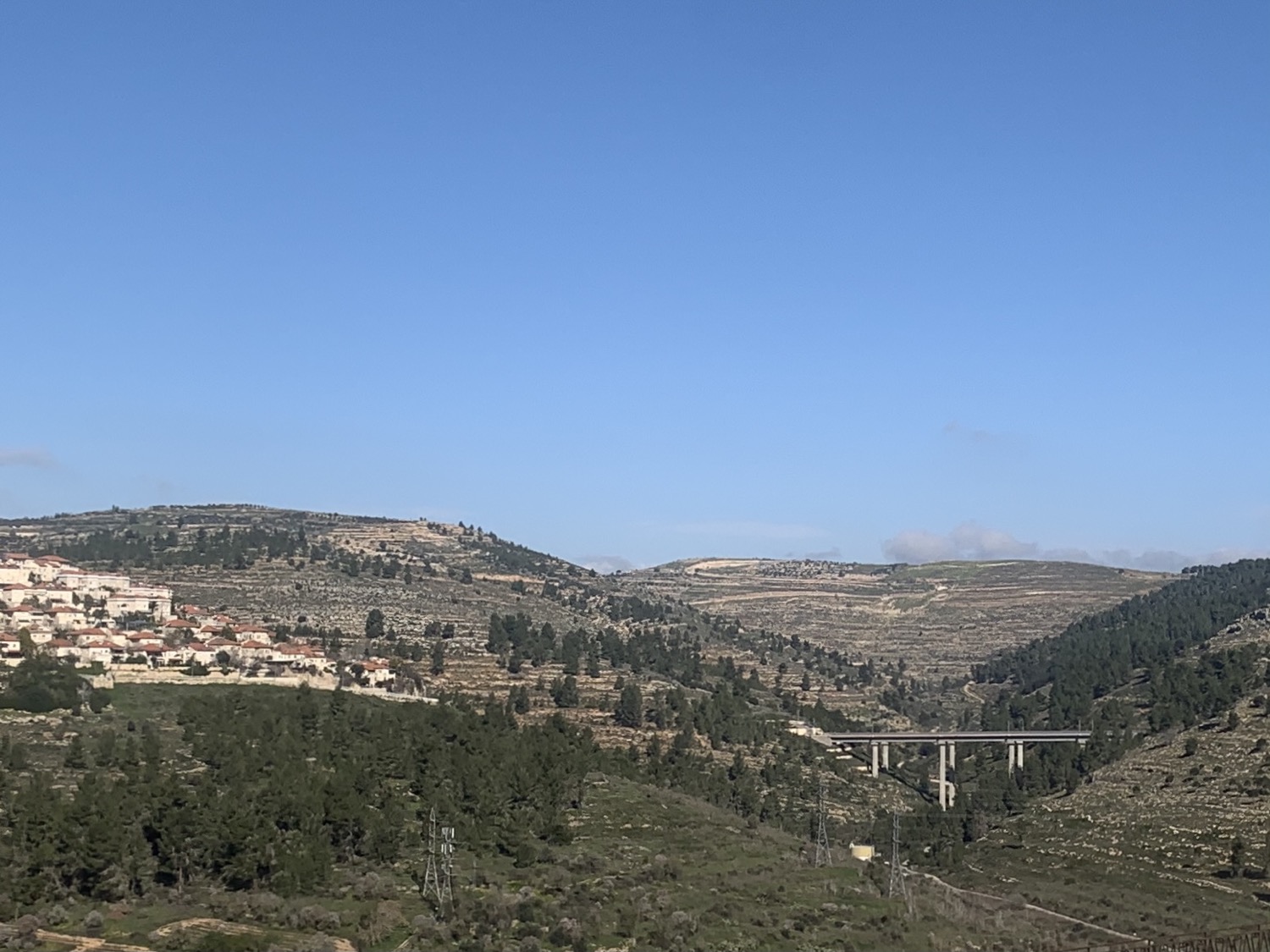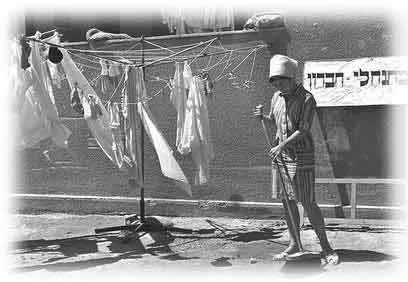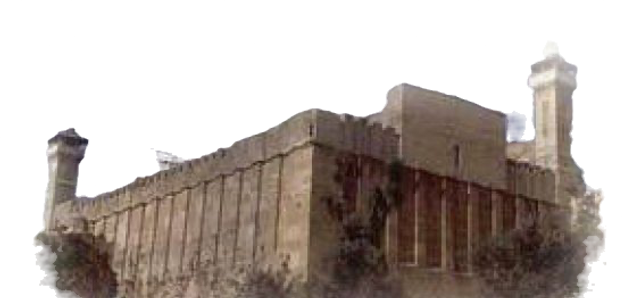Rabbi Moshe Levinger the father of the settlers, describes the beginning of the settlement in Hebron
- צבי הורביץ

- May 31, 2023
- 10 min read
This is how it started: I got to know Eliakim Hetsani in an activity for the Kfar Etzion Aliya that took place in the summer of 1977 for several months. After the Six Day War. On the Sukkot holiday about a month after the Kfar Etzion Aliya, Eliakim calls me and invites me to an urgent meeting in his office and this is his story:
"Several people visited Rabbi Sarna, head of the Hebron yeshiva, to discuss with him the restoration of the yeshiva that was destroyed in the events of 1959. The rabbi's answer was: I met Ben-Gurion during my visit to Hebron a few days ago and I offered him to return the yeshiva to Hebron, and Ben-Gurion wondered why we hadn't gone up yet - well, well, we need to go up immediately."
Elikim also passed away after the end of the story - "Well, what to do, something has to be done!!"
I approached the youth of the MDF and asked them to publish an ad in the newspapers: "Who is willing to immigrate to Hebron - soon a Jewish city will be built there." They agreed. Notices were published. There were also those who expressed their willingness to immigrate. There was also a parallel group to the movement for Israel's completion, they also published advertisements.
Among the Jews who responded to those ads was a nice and good guy who fell after a while in a battle against infiltrators in the Jordan Valley, the late Moshe Steiner. Moshe was turned on by the idea and together we decided to hold a meeting at the HMFDL in Tel Aviv.
A few days before the meeting, I met Rabbi Eliezer Waldman as he was leaving the Zichron Moshe Synagogue in Jerusalem. His expression indicated a certain sadness. Rabbi Eliezer told me: "We really wanted to go live in Kfar Etzion, but they decided not to accept elderly families." I answered him: "Interesting in the same matter. In a few days there is a meeting about Aliyah to Hebron. Maybe you will come?" Rabbi Eliezer replied: "I will come to Israel, it certainly won't hurt to harm."
The meeting took place. My wife Miriam did not attend the meeting. But I remember very well what she told me before the meeting: "Look, the government will not promote you, you will promote and then the matter will be settled." The meeting was attended by about 30 people, some of them heads of families. The meeting was lively. Rabbi Zvi Segal also participated. At the end of the meeting I brought as one Sum up Miriam's proposal - I was the only one who voted for it. The majority supported political contacts and the expansion of the framework.
activity has begun. We were all extremely green in the laws of politics (perhaps to this day?!) I remember very well with what awe we went to the meetings. I once received a call from "one of the activists"; "Come to the meeting with the agency tomorrow at 06:00 in the evening." When I arrived, they told me: "There is a meeting with the coordinator of operations in the territories, Col. Shlomo Gazit, at the Ministry of Security, which is about 300 meters away from the agency's offices, but you must not mention the Ministry of Security on the phone." Col. Gazit told us: "You will receive an answer." To this day we have not received it.
The Prime Minister at the time, the late Levy Eshkol, did not want to receive us, the Minister of Defense at the time Moshe Dayan also refused. Today, years later, it seems to me that they flatly refused to receive us because they did not know what they would answer.
We received a very warm welcome from the leaders of the movement for Ai Shlomo and Baruch Dovdevani who said to us in this language: "I don't know how much I can help you, my strength is not great. But I am with you with all my heart."
We also worked to expand the framework. The main activity was done by Yankela Levin, who at that time was studying at the Rabbi's Center and brought Roni Strasberg, Zvi Idels, Israel Kafir, Rabbi Shlomo Aviner, Menachem Felix and other guys who were all single and formed the nucleus of the settlement. Menachem Felix got engaged Exactly at that time and he made sure to write in the engagement deed that he would marry the celebrated bride Tova in order to live in Hebron.
After about three months of activity to try and obtain government approval for the settlement in Hebron, they gathered again in Tel Aviv. It was three weeks before Passover. Again a long discussion took place and this time the vote was the exact opposite: all but one were in favor of it even without the permission of the institutions. It was agreed according to the style of Oved Ben Ami, one of the leaders of the movement for Israel's completion: "If the government does not bless us now, we will go up and receive its blessing after the fact."
The wheels of action began to turn.
We began to tour Hebron together with the Elders of Hebron to find a place. I will never forget the tour with Mr. Avraham Franco (the head of the community before the events of 1975) in the cemetery which was promiscuous and neglected and in its rocky part was an area for grazing sheep. When we arrived at the plot of the martyrs that was strewn with vegetables, Mr. Franco said: "You see - here is the plot of the martyrs of 1955, at the end of the plot, under the cabbage, my father is buried."
Mr. Franco is very happy about the trend to return and renew the settlement in Hebron, and when we defended Beit Hadassah, he promised us the building in this language: "When you go to Hebron, you will receive the building from me." After a few years we received a document from him about it.
At the end of the tour, it was agreed to accept Shimon Schlichter's proposal: "It is impossible to know what exactly will develop, in the meantime we will rent a hotel, hold the "Seder" and celebrate Passover." We entered the Park Hotel in Hebron. We were afraid that the hotel owner would be afraid of terrorists, so we introduced ourselves as tourists from Switzerland. We rented the hotel for 10 days with an option to extend as much as we want.
The owner of the hotel was very happy about his desire to stay and especially his joy grew when we told him that we might stay at the hotel for a long time.
From Hebron we went to a meeting with the movement for Israel's completion. They were happy about our decision and promised to help with money and security.
Preparations began, groceries were bought, and the entire Muslim hotel kitchen became a kosher kitchen to the strictest of standards. We moved on to deal with the issue of security. Together with Col. Yehoshua and Rabin from the movement for Ai Shlomo, we went to the Central Command, straight to the room of Command Major Uzi Narkis.
When we arrived he was not in the room - having lunch. We waited. When he returned, he burst out with rage at Col. Yehoshua and Rabin: "Why did you enter my room? Why did you bring them to me?" (apparently he was instructed not to receive us).
At the end of the reprimand towards Verbin, he turned to us: "What do you want?" They answered: "We want to go up to Hebron." He replied: "I don't care, I don't know anything, rent a hotel, put up tents, I don't know, I don't know."
His reaction was strange. And Rabin hinted that we would go out. We left when we were outside and Rabin said: "You see! - The General Staff heard your plans. Surely they will accept responsibility for your safety. All threads are sewn. Hello".
The matter seems strange. We decided to go to Hebron and talk to the military governor. He also responded in the same way: "I don't know, I don't know, I'm not responsible."
When we arrived on Pesach eve about two hours before Seder - the same reaction again. We asked: "So what - how will the guardrails be?", the military governor remained embarrassed, took the "Maariv" newspaper that was placed New, tore out the white page of the newspaper along the entire page, and wrote: 'To the Chief of Police here. Please give the Mozaz 2 goats, and 4 guns!' and signed his name. We approached the police chief and received the weapon. I wonder how far a policy of hesitancy can go.
The families arrived in two trucks, we preferred to tell the drivers who were going to Be'er Sheva, and when we passed Hebron we told them: "You are lucky, we decided to cut the road short." When the first refrigerator was taken down, Amos Ben Shafer passed away: "The whole time I couldn't believe counting, but if they brought a frigidaire, it's serious."
The preparations for the order are over. Mezuzahs were placed on the doors of the hotel rooms and we said goodbye to Mrs. Rachel Yanait Ben-Zvi who came to bless us - on the occasion of the immigration to Hebron.
The organizer of the seder was Knesset member Rabbi Haim Druckman, and personalities such as: Moshe Shamir, Shmuel Katz, Israel Harel and more participated.
Warm words of congratulation on the right to once again hold "Seder" in the city of the ancestors were said by the editor of "Seder" and the rest of the returnees. Everything was told in the exodus from Egypt until midnight, and then the dancing began, with the cooperation of the border guard soldiers, who were sent to guard us despite the political instructions, that "we don't know anything". Notable was the participation of one of the Druze commanders, Amer, who danced warmly and fervently "and returned boys to their border".
On the evening of the first day of the holiday, the first meeting of members was held. Since some of those present at the hotel tended to identify themselves as guests and not as settlers, the question was asked who had the right to vote, I remembered the first meeting in Kfar Etzion, where the same question was also asked. There the question was formulated: "Who is safe Will he stay in Kfar Etzion?" - One finger of Manir Etzion's daughter (who in the end did not stay) was raised. That is why this time I presented the question along these lines: "Who is sure that he will not stay?" Only one finger was raised.
During the scheduled weekdays, representatives of the movement for Ai Shlomo and ministers Alon and Begin Verhaftig visited the hotel. The first were the members of the movement who visited on Sunday, A. Dahom, Alon - on Monday, Begin - on Tuesday, Verhaftig - on Thursday.
Among the members of the movement for Ai Shlomo was also the late poet Natan Alterman, who delivered the congratulatory speech on behalf of the movement. It was decided to send congratulatory telegrams to the Prime Minister and the Minister of Defense and we signed for the first time - Hebron settlers.
The Minister of Defense replied in a telegram: "I thank you for your blessings and Happy Holidays." A hint of state recognition. Rabbi Zvi Yehuda ztzel, who was a little hesitant lest the government would look favorably on this private aliyah, was very happy about the blessing and said that at first he hesitated but now he sees that there is a faction of the people, God bless.
Alon, who was then the sympathetic minister from the largest party in the government, said: "You may have to wait a long, long time until the government approves your immigration." To this Rabbi Eliezer Waldman replied, on behalf of the settlers: "There is nothing to fear, we will hold out!"
Minister Yigal Alon, who heard that the government did not approve weapons for the settlers, turned to Kfar Etzion on his way to Jerusalem and asked them to deliver "something" to the settlers in Hebron. I think they conveyed "something" Minister Begin was received as usual with warmth and hugs. Minister Verhaftig arrived last Yot evening and brought with him the first Shas for the yeshiva.
All the distinguished visitors received a "shower" for their visit, at the government meeting held after Passover.
On the day of the meeting, we appealed to Yosef Goldschmidt, who was then the inspector of education in Israel, and asked him to approve the establishment of a school in Hebron. Goldschmidt replied in the affirmative. The next day, he informed me that Mr. Goldschmidt was looking for me urgently. " - said.
After the holiday, an unapproved school was established in the "Park" hotel. Two sons and one daughter - first classes. 2 2nd grades - 1. Yoska Baged from Nahalim Yeshiva donated 10 benches, a board, etc. When the equipment arrived we saw the hotel owner pacing nervously back and forth along the hotel corridors. We asked him: "Has it been agreed that we will stay here as long as we want?" - The hotel owner replied: "We agreed on a hotel, not a school." Finally, a 'territorial compromise' was agreed upon with him: the children were satisfied with two benches (for 3 children) and the rest would go into the hotel's warehouse.
In addition to the school, a Yeshiva was also opened after Passover. There were about ten students from the Merkaz Rabbi yeshiva. Yeshiva "Or Etzion" sent a group of students to the Yeshiva. We received financial assistance from the movement for AI Shlomo and the late Mr. Shmuel Wang from the USA who helped us throughout the first summer of our stay in Hebron.
"I don't know" style - was also said at the cabinet meeting that was required to discuss the settlement issue in Hebron. Minister Verhaftig submitted a query to the Minister of Defense at the time: "Who is responsible for the security of the settlers in Hebron?" Dayan replied: "What do you want me to take them down? - I will take them down! What do you want me to take care of their safety? - I brought them?! - I brought them up?!" It's all in the language. This was reported to me from behind the curtain of the government meeting.
The change in the government's approach came because of Jabari.
We had two meetings with him after our arrival. On the first visit, he treated us with respect - "Hello and welcome!" and expressed willingness to visit us at the hotel in the coming days. But the second morning he called us "Hitlerists". This expression aroused us and we left with a door slam. The matter became an "affair" and the government began to address the issue. They couldn't take us down after this brazen and condemned style, but even deciding to establish a Jewish city in Hebron was difficult because "they might take it back."
Therefore, three decisions were agreed upon:
A. The government authorizes the group of settlers to live in Hebron.
B. The government will help establish a Yeshiva on the spot.
third. In the above decisions there is no approval for the establishment of a Jewish city or industrial plants in Hebron.
This government meeting was held on Shani Pesach, exactly one month after the Aliyah on the eve of Passover.
After a short time, the commander of the Judea and Samaria region, Col. Raphael Vardi, arrived for his first official visit. Vardi said that he was entrusted with the responsibility for the security of the settlers and suggested that we move to the military government buildings. He also suggested that we pledge to be quiet. We accepted the Risha. We rejected the Sipa.
The government was interested in reducing the profile of the settlement, but we claimed immediately and in all media, "If the government takes care of our security and allocates us a part of the government building, it means that it recognizes the settlement, and as the government began to recognize, so surely the settlement will grow and grow, and eventually Kriya will be built and industrial plants will be built.





